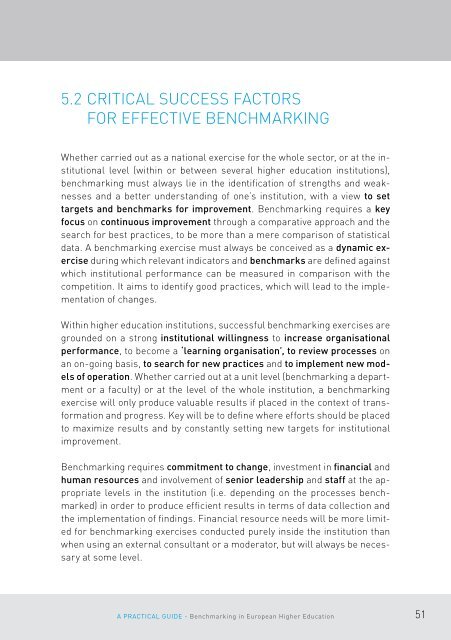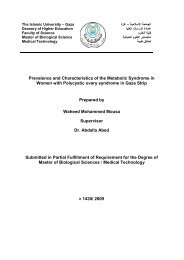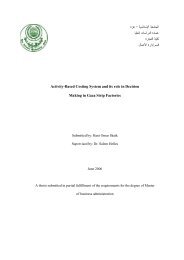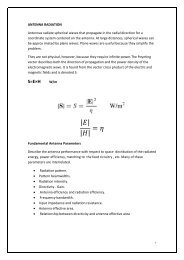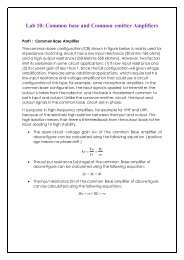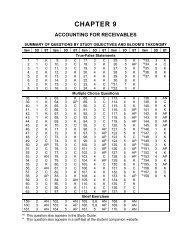A prActicAl guide Benchmarking in european Higher education
A prActicAl guide Benchmarking in european Higher education
A prActicAl guide Benchmarking in european Higher education
You also want an ePaper? Increase the reach of your titles
YUMPU automatically turns print PDFs into web optimized ePapers that Google loves.
5.2 Critical success factors<br />
for effective benchmark<strong>in</strong>g<br />
Whether carried out as a national exercise for the whole sector, or at the <strong>in</strong>stitutional<br />
level (with<strong>in</strong> or between several higher <strong>education</strong> <strong>in</strong>stitutions),<br />
benchmark<strong>in</strong>g must always lie <strong>in</strong> the identification of strengths and weaknesses<br />
and a better understand<strong>in</strong>g of one’s <strong>in</strong>stitution, with a view to set<br />
targets and benchmarks for improvement. <strong>Benchmark<strong>in</strong>g</strong> requires a key<br />
focus on cont<strong>in</strong>uous improvement through a comparative approach and the<br />
search for best practices, to be more than a mere comparison of statistical<br />
data. A benchmark<strong>in</strong>g exercise must always be conceived as a dynamic exercise<br />
dur<strong>in</strong>g which relevant <strong>in</strong>dicators and benchmarks are def<strong>in</strong>ed aga<strong>in</strong>st<br />
which <strong>in</strong>stitutional performance can be measured <strong>in</strong> comparison with the<br />
competition. It aims to identify good practices, which will lead to the implementation<br />
of changes.<br />
With<strong>in</strong> higher <strong>education</strong> <strong>in</strong>stitutions, successful benchmark<strong>in</strong>g exercises are<br />
grounded on a strong <strong>in</strong>stitutional will<strong>in</strong>gness to <strong>in</strong>crease organisational<br />
performance, to become a ‘learn<strong>in</strong>g organisation’, to review processes on<br />
an on-go<strong>in</strong>g basis, to search for new practices and to implement new models<br />
of operation. Whether carried out at a unit level (benchmark<strong>in</strong>g a department<br />
or a faculty) or at the level of the whole <strong>in</strong>stitution, a benchmark<strong>in</strong>g<br />
exercise will only produce valuable results if placed <strong>in</strong> the context of transformation<br />
and progress. Key will be to def<strong>in</strong>e where efforts should be placed<br />
to maximize results and by constantly sett<strong>in</strong>g new targets for <strong>in</strong>stitutional<br />
improvement.<br />
<strong>Benchmark<strong>in</strong>g</strong> requires commitment to change, <strong>in</strong>vestment <strong>in</strong> f<strong>in</strong>ancial and<br />
human resources and <strong>in</strong>volvement of senior leadership and staff at the appropriate<br />
levels <strong>in</strong> the <strong>in</strong>stitution (i.e. depend<strong>in</strong>g on the processes benchmarked)<br />
<strong>in</strong> order to produce efficient results <strong>in</strong> terms of data collection and<br />
the implementation of f<strong>in</strong>d<strong>in</strong>gs. F<strong>in</strong>ancial resource needs will be more limited<br />
for benchmark<strong>in</strong>g exercises conducted purely <strong>in</strong>side the <strong>in</strong>stitution than<br />
when us<strong>in</strong>g an external consultant or a moderator, but will always be necessary<br />
at some level.<br />
A Practical Guide - <strong>Benchmark<strong>in</strong>g</strong> <strong>in</strong> European <strong>Higher</strong> Education<br />
51


